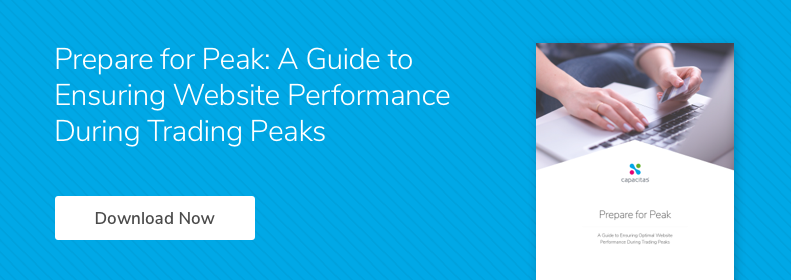It feels a bit like last-minute Christmas shopping — that frantic scramble to find a less than impressive gift. Only in this case, it's not too late to delight the business with an impressive performance over the Black Friday period.
By now, you've made your list and tested everything once, twice, thrice... However, Black Friday readiness isn't just about testing; many other activities contribute to a successful event. Here are five that you might not have considered, which you can carry out in weeks up to Black Friday. None of which requires a change to your existing prepare for peak performance strategy — in fact, they'll likely complement your current approach.
1. Make sure business hasn't moved the goals posts
We all know marketing plans are more agile than the average DevOps team. If the marketing team has upped the discount or adjusted the campaign, you need to know. Make sure you schedule regular check-ins with marketing and sales to get accurate traffic forecasts. If there are any significant changes, make sure your team knows.
2. Model demand and capacity in advance
Avoid unpleasant surprises in the run-up to Black Friday and regularly model demand and capacity requirements on a daily basis. Marketing campaigns in the run-up to Black Friday period can cause spikes in demand. And while your focus is on processing orders, a sudden spike in website traffic might degrade the user experience unexpectedly or highlight some unexpected risks in your platform.
Modelling capacity and demand in the run-up will provide invaluable insight into how your platform will perform on the big day itself. Using data from both test and production, you can model the impact on platform performance as the business executes marketing campaigns.
If the model doesn't provide you with confidence, then give feedback to the business on how to stagger marketing and promotion campaigns.
3. Ongoing readiness assessments
Now is the time to go deep! Make sure there aren't any risks or instability issues in your platform. Go beyond the classical performance metrics and cover a far broader range of metrics than you normally look at. Need help, take a look at our 7-Pillars of Software Performance.
4. Contingency plan
Make sure your contingency plan is up to date and tested. Inevitably, the people and platform behaviour will have changed since last year.
These are some of the key questions the contingency plan should answer. Where are the highest risks? How might recent changes affect performance? What will you do when risks become issues? And, how will you know when to invoke defensive measures? What are the key metrics you need to monitor on the day? What is the approval process for initiating defensive measures?
These are just some of the considerations you need to build into this year’s contingency plan.
5. Black Friday playbook
Make sure you have a playbook ready for the day. It doesn't have to be exhaustive and complicated. Focus on the fundamentals, who is onsite, who's available via phone, what is the escalation process, and how do you engage 3rd party support personal.
Click the banner to download a copy of our Prepare for Peak playbook.
If you're in the cloud, you should be fully elastic and have confidence in your platform capacity for a peak. If not, your DevOps processes may not be cloud optimal. To find out how you can improve, try our Cloud Optimisation Diagnostic tool.
